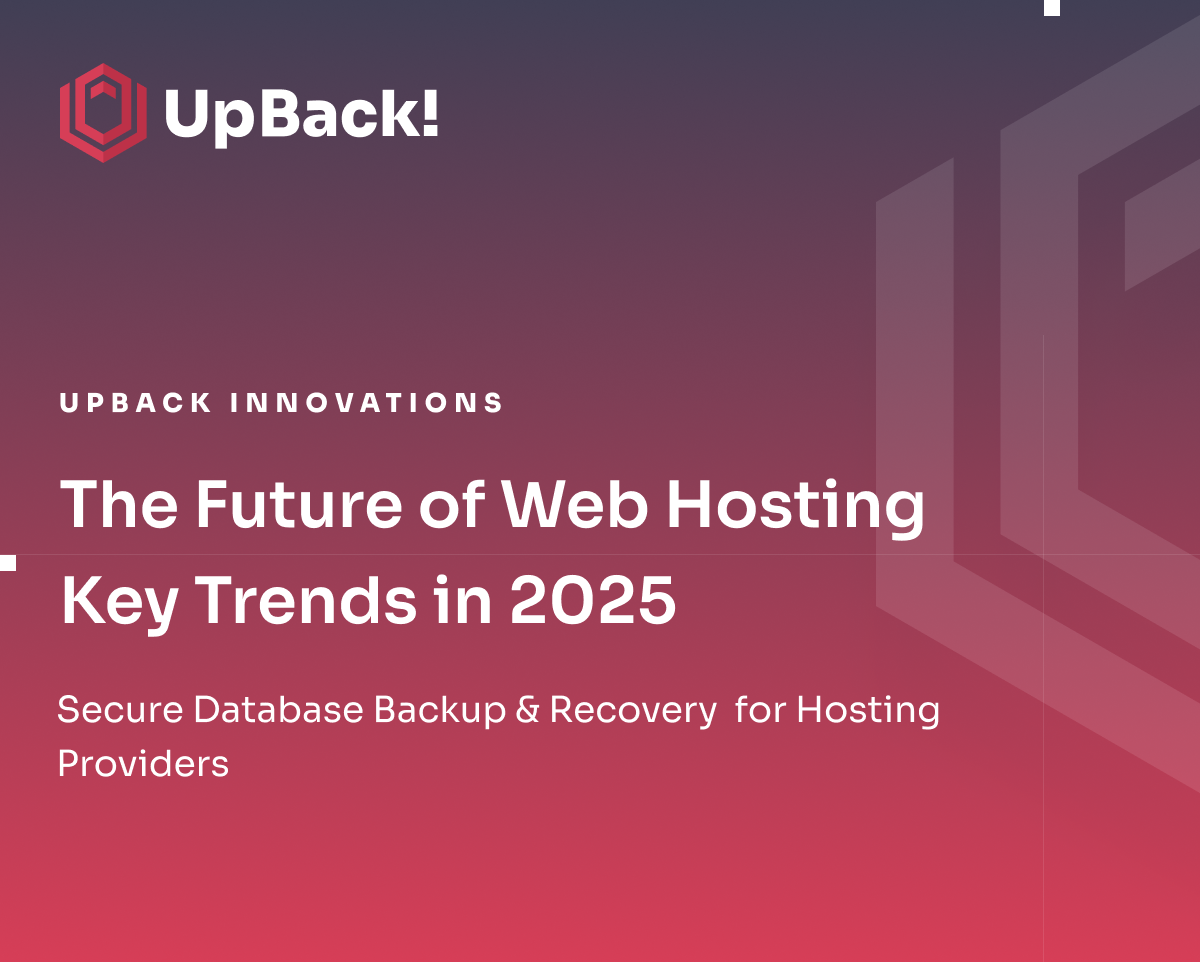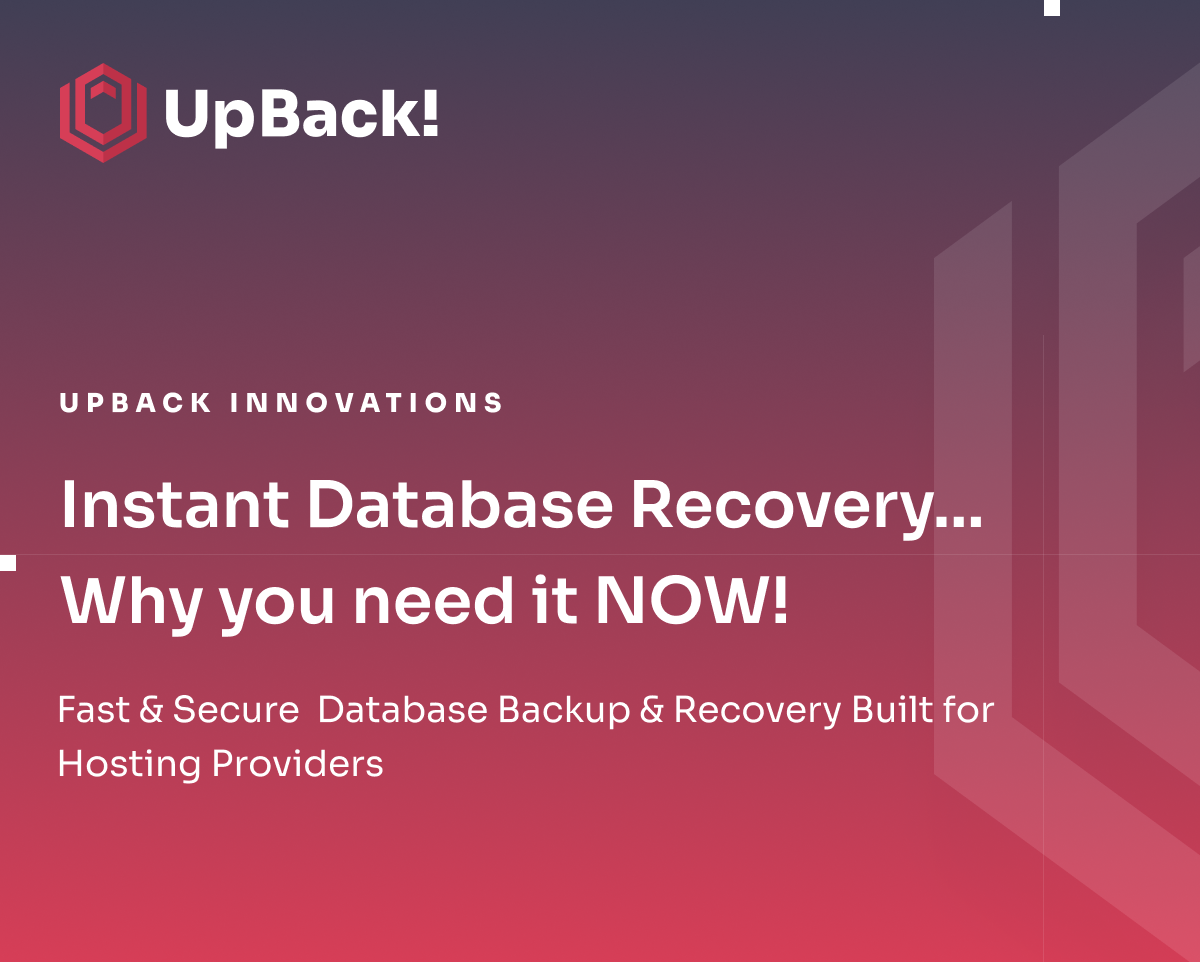Automated Database Backups | Tips for Business leaders
When it comes down to the nuts and bolts of modern database management, automated database backups are a crucial component, especially when dealing with vital business or more importantly, client data!
These backups are automated processes designed to regularly capture and store data from databases, ensuring that the latest information is always available for recovery.
Unlike manual backups, which require human intervention and are prone to inconsistencies, automated backups offer a reliable, consistent approach to data protection.
Key Aspects of Automated Database Backups:
Consistency and Reliability:
Automated backups run on a scheduled basis, ensuring data is regularly and reliably backed up without human error.
Efficiency in Data Management:
They streamline the backup process, reducing the workload on IT staff and minimizing the chance of missed backups.
Scalability:
As business data grows, automated backups can easily scale to accommodate increasing amounts of data.
The relevance of automated database backups to business operations cannot be overstated.
In a business, data is created all day and often changed or updated. Being able to back up this data automatically means there's less chance of losing it if the power goes out and we need to switch it back on and pick up where we let off...
This automatic way of doing things makes work easier because it saves time for IT staff and also makes sure the data is safer.
With consistent and timely backups, businesses can rest assured that their data is secure and can be quickly restored, maintaining business continuity and protecting against potential financial and reputational damage caused by data loss.
The Fundamentals of Automated Database Backup Strategies
Understanding Backup Types: The UpBack! Method for Data Security
At UpBack!, our approach to automated database backups centers on three key aspects: comprehensive backups, data compression, and robust encryption.
This strategy, while maintaining a semblance of traditional methods, is deeply rooted in our extensive expertise in database management. It's tailored to address the complex challenges that businesses encounter in safeguarding their data.
Our focus ensures not only the completeness of data backups but also their efficiency in storage and security against potential breaches.
Full Backup for Data Consistency and Integrity
Comprehensive Data Capture:
Reduced Storage Footprint:
By compressing the backup data, we reduce the storage requirements, making this approach more efficient and economical, especially when dealing with large databases.
Balancing Speed and Size:
Compression strikes a balance between backup speed and storage space, ensuring efficient use of resources without compromising on backup quality.
Encrypted Backups for Enhanced Security
Safeguarding Data:
Encryption is a cornerstone of our backup methodology. By encrypting data during the backup process, we ensure the security and confidentiality of your information, protecting it from unauthorized access and potential breaches.
Choosing the Right Backup Schedule: Optimizing for Peak Performance
Determining the optimal backup frequency is vital in maintaining an efficient and effective backup strategy. At UpBack!, we recommend considering the following factors:
Data Criticality:
The more critical the data, the more frequent the backups should be. For high-priority databases, consider more regular backup schedules.
Data Volume and Changes:
Assess the volume of data and the frequency of changes. Databases with high transaction volumes might require more frequent backups.
Operational Requirements:
Align the backup schedule with your business's operational needs, ensuring minimal disruption and maximum data availability.
while full, compressed, and encrypted backups like those offered by UpBack! represent a significant advancement in data protection, the next step involves tailoring these strategies to optimize performance for specific database systems.
This transition brings us to a crucial aspect of database management: enhancing backup performance for widely-used systems like MySQL, MariaDB, and PostgreSQL.
Optimizing Backup Performance for MySQL, MariaDB, and PostgreSQL
Customizing Backup Settings for Different Database Systems
Each database system, including MySQL, MariaDB, and PostgreSQL, has unique features and requirements that necessitate tailored backup strategies. Customizing backup settings is essential to optimize performance and ensure data integrity.
Adaptation to Database Characteristics:
Tailoring backup processes to align with the specific architecture and usage patterns of MySQL, MariaDB, and PostgreSQL ensures optimal performance and minimizes the impact on database operations.
Leveraging System-Specific Features:
Understanding and utilizing the inherent strengths and features of each database system can significantly enhance the efficiency and effectiveness of backups.
Balancing Speed and Storage:
Strategies for Efficiency Efficient backup strategies must strike a balance between speed and storage requirements. This balance is crucial for maintaining operational efficiency while ensuring data safety.
Data Compression Techniques:
Employing data compression reduces the storage footprint of backups, enabling faster backup processes and more efficient storage utilization.
Prioritization According to Needs:
Depending on an organization's specific requirements, backup solutions can be adjusted to prioritize either speed or storage efficiency. This flexibility allows for backups that are tailored to operational and business needs.
While solutions like UpBack! provide a robust framework for secure and efficient backups, the key to peak performance lies in customizing these strategies to fit the unique demands of different database systems.
By understanding the nuances of MySQL, MariaDB, and PostgreSQL, and applying targeted backup techniques, businesses can ensure their data is not only secure but also managed in the most efficient way possible.
The Role of Agent-Based Backup Solutions
Agent-based solutions like UpBack! are becoming increasingly pivotal. This approach, where lightweight agent software operates directly on the server hosting the database, offers a range of benefits that traditional methods may lack.
Advantages of Agent-Based Backups
Direct Server Interaction:
Agent-based systems interact directly with the database server, allowing for more efficient data capture and processing. This direct interaction reduces the load on network resources and enhances the speed of the backup process.
Real-Time Data Capture:
Agents can capture data in real-time, ensuring that backups are as up-to-date as possible. This is particularly crucial for dynamic databases where data changes frequently.
Customized Data Handling:
Each agent can be configured to meet the specific needs of the database it manages, allowing for a high degree of customization in backup processes.
Enhanced Security:
With agent-based backups, data can be encrypted at the source before it's transmitted or stored, significantly increasing data security.
Maximizing Database Health with Optimal Backup Practices
This article has explored the crucial role of automated database backups in ensuring the health and security of modern databases. We've delved into the benefits of agent-based backup solutions, like UpBack!, which offer direct server interaction, real-time data capture, and customized data handling.
The importance of robust encryption and adherence to regulatory standards in automated backups has been emphasized to ensure data protection and compliance regulations such as GDPR or HIPAA.
Implementing these optimized backup practices is key to maintaining peak performance and security in database management.
With the increasing complexity and criticality of data, adopting solutions like UpBack! that prioritize full, compressed, and encrypted backups, while catering to the unique needs of systems like MySQL, MariaDB, and PostgreSQL, is more than a strategic decision—it's a necessity for any data-driven organization.
To learn more or reach out to us get in touch here




